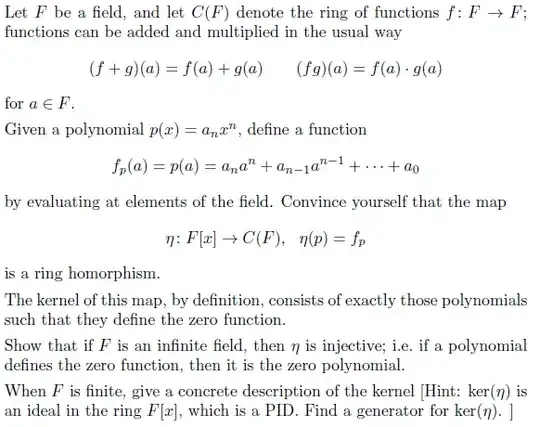Here is the question I am trying to attempt:
I feel like there is a typo... it says let $p(x)=a_{n}x^{n}$. Shouldn't it be $p(x) = a_{n}^{n}\cdots + a_{1}x+a_{0}$? I feel like I must use the roots of $p(x)$ in my answer, but I am not sure how and where. Any hints on what I should do?
Edit: The duplicate answer did not help me because I am trying to prove injectivity...it has already been assumed that $\eta$ is a ring homomorphism.
